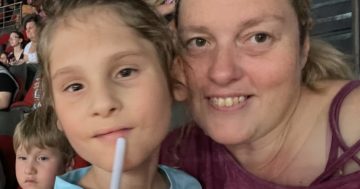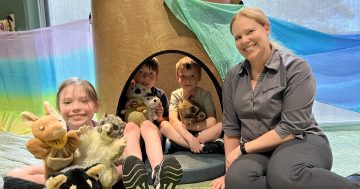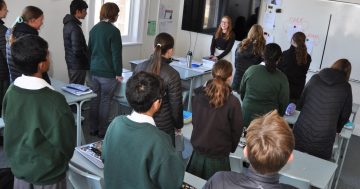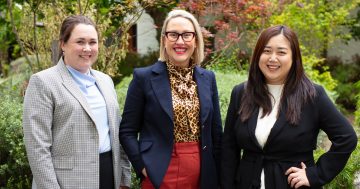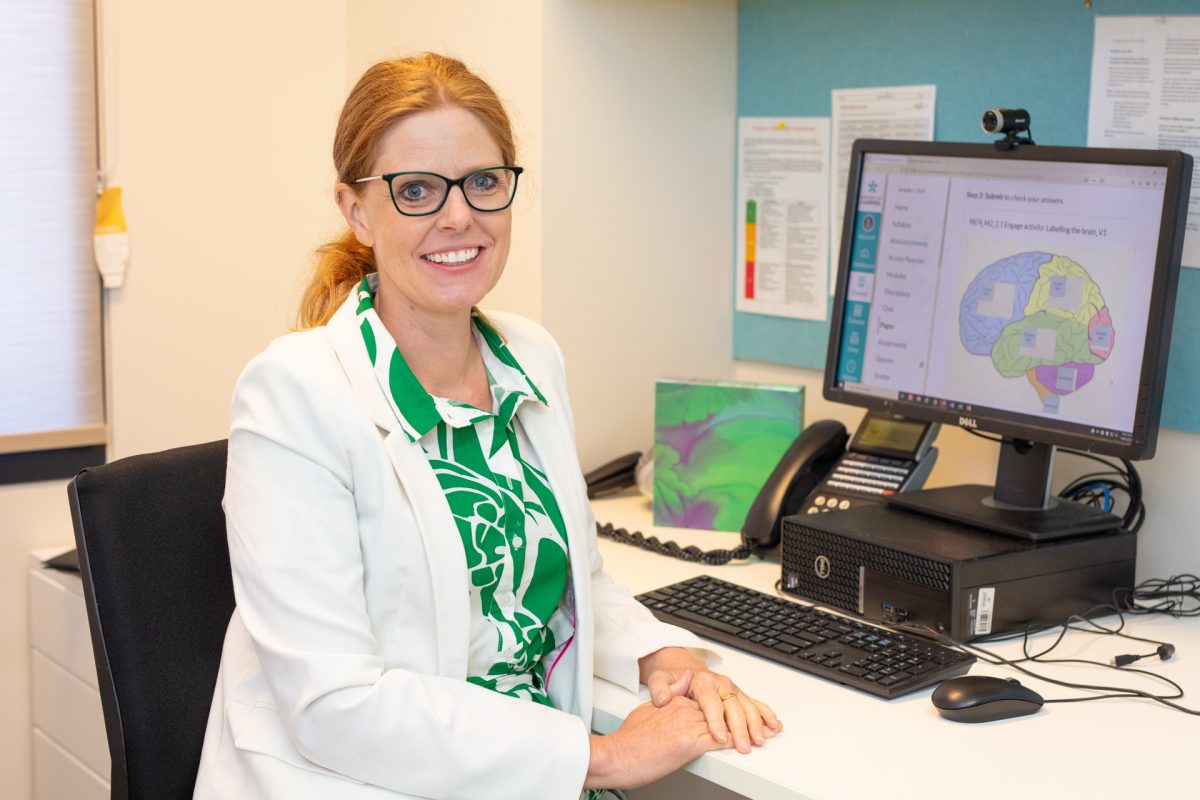
Dr Karen Oakley says preparing for autism and ADHD assessments doesn’t need to feel insurmountable. Photo: Thomas Lucraft.
Clinical neuropsychologist Dr Karen Oakley has a lot of experience talking parents and families through autism and ADHD assessments.
“Having a child go for an assessment can be a stressful experience for families,” said the senior lecturer at the University of Canberra.
“Having an idea about the process and what questions will be asked can help parents be more prepared.”
Dr Oakley – a supervisor at the university’s Health Psychology Clinic – starts by assessing the background.
“I’m going to want to know the history of the child or the person being assessed – and that history is quite detailed,” she said.
“That can be quite challenging, because we do get into the nitty gritty of pregnancy, and developmental and communication milestones.”
Dr Oakley said the assessment process could cover topics including when a person first started to talk, how they soothed themselves and how a child engaged with peers.
“That helps us understand if this is a typical pattern for someone who might have a developmental delay or a diagnosis like autism, or if there is something else we need to look at,” she said.
“There’s an understanding in the community of how autism works or how ADHD looks, but sometimes that is the same as how anxiety might present, or it might overlap with a medical condition.”
This can catch parents or other caregivers off guard due to the time that has passed or because they are not consciously noting those behaviours.
“What I ask in the clinical setting are the things that we don’t necessarily observe every day or pay attention to,” Dr Oakley said.
“Parents sometimes say they weren’t consciously noting these things, so it can be quite a big shock that they’re being asked about them.”
Those living in a rural or remote area can face extra challenges when accessing specialised care.
Families may need to travel, meaning additional costs for accommodation and related expenses – and waitlists for an assessment can be as long as two years.
Dr Oakley said a lack of specialists and resources were behind the wait times. Regional and remote families also faced a lack of support networks.
“Even in metropolitan areas where there are more resources, there are access issues in terms of waitlists,” she said.
“But in rural and remote locations, we’ve got access issues like whether anyone can provide the assessment.
“There may not be the opportunity for the assessing clinician to go and observe the child in different settings, like school.
“Some clinicians will offer telehealth services, but for a lot of children with these neurodevelopmental disorders, telehealth can be quite challenging for the child to engage with.”
Regardless of where they lived, Dr Oakley said a parent or individual could prepare at home to help the assessment.
“Going through baby books can be really useful because that’s where parents note down developmental milestones. Medical reports or school reports can also help,” she said.
“Families can also prepare by having basic checks done – such as vision, hearing and general health checks – to rule out anything else.”
Dr Oakley said parents could also gather information from outside the family.
“A parent can ask other people to describe some really clear examples of the child’s functioning and behaviours as well.
“Other carers, a teacher or day care and preschool staff can provide some of that information.”
She also recommended reaching out for support – to help the child and entire family.
“It’s stressful to go through the assessment process [and] for rural and remote families who may be isolated geographically.
“Access to support networks or other family and friends can be more limited, but they are really important.”













